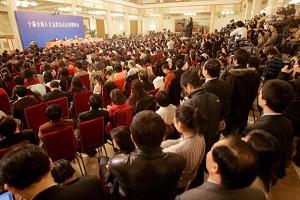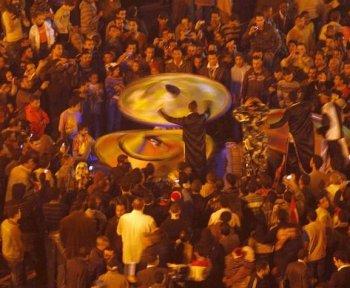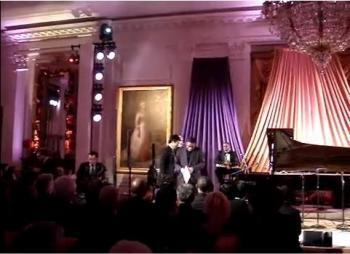On March 16, 2007, Wen Jiabao, premier of the People’s Republic of China, met with reporters from around the world during the National People’s Congressional Meeting. During the interview, a reporter from Le Monde Diplomatique , a French media outlet, inquired about issues related to Zhao Ziyang, former Chinese Premier and Chinese Communist Party (CCP) General Secretary who was forced to resign during the 1989 Student Movement. Wen’s response to this particular question was omitted by Xinhua News Agency and many other online news sources.
The first part of the question raised by the French reporter concerns an article by Wen entitled, “My Thoughts On The Historical Duties Of The Beginning Stages Of Socialism And Its Foreign Policies,” which was recently published in People’s Daily .
The reporter then went on to say, “Hong Kong recently published a book by former Chinese Premier and General Secretary Zhao Ziyang. Zhao mentioned in his book that China must, like Taiwan, undergo democratic reform if it wishes to achieve modernization. Taiwan was also under a dictatorship in the past but currently has a democratic and multi-party political system. What is your view on Zhao’s words?”
Wen replied, “The book published in Hong Kong that you are referring to is not related to my earlier points since I have not read the book.”
The omission of this conversation by the Chinese media immediately caught the attention of western media. The Associated Press commented on March 16, 2007 that, to this day, China’s state-run media seldom mentions Zhao, the former leader who supported political reform. “Even Wen’s passive response to the inquiries regarding Zhao was immediately erased from the official record. Xinhua News Agency subsequently deleted the French reporter’s question and Wen’s reply as if the conversation had never happened.
On March 20, 2007, a reporter from The Epoch Times interviewed Mr. Sun Wenguang, a former professor of Shandong University for his opinion on this incident. Sun stated that the deliberate act of omitting the conversation, even after Wen declined to express any positive or negative views on Zhao, showed that the Chinese communist regime is still very sensitive on issues relating to Zhao Ziyang and the June 4 Tiananmen Massacre. This further shows the CCP’s fear of its weak political stance.
Sun speculated that deletion of that particular segment from the interview was probably not Wen’s idea, but was actually done under the influence of Jiang Zemin’s regime. The power struggles among high-level officials in the CCP are incredibly intense. Under such circumstances, Jiang’s regime undoubtedly wishes to avoid sensitive issues surrounding Zhao Ziyang and the Tiananmen Massacre.
Chief Editor of Dongxiang Magazine , Mr. Zhang Weiguo, explained to The Epoch Times why Wen avoided the French reporter’s question with a passive demeanor. Zhang pointed out that Wen is currently in a difficult situation and is under a lot of pressure, which is why he did not offer a more detailed response. His behavior during the press conference offset the powerful image and political status he tried to create during the Congressional Meeting. Zhang then mentioned a quote from an article in the latest issue of Dongxiang Magazine , which closely portrays the intricate relationship between Wen and other high-level Party officials. It said that after Chen Liangyu, a key figure of Jiang Zemin’s gang, was removed from power, Hu Jintao then turned his target to Huang Ju and Jia Qinglin. However, Jiang Zemin proposed that to remove Jia and Huang, Hu must use Wen as an exchange. Therefore, Wen is in danger of becoming a sacrifice at any time as the conflict between higher authorities intensifies.
Since the implementation of the macro-control policy in 2004, Wen has been the target of many political power struggles. Chen Liangyu led the first attack on Wen. Chen accused the macro-control policy of impeding the development of the eastern cities in Jiangsu Province and Zhejing Province, and especially Shanghai. Chen warned Wen and the rest of the cabinet that if they continue to push for macro-control, they must be willing to take political liability for injuring economic development on a national scale.
Zhang Weiguo believes that putting pressure on Wen, an astute, capable and uncorrupt official, reveals the vile nature of the Chinese communist regime. Anyone who fosters a genuine hope to serve China and its people is constrained by the CCP. Wen knows perfectly well that the communist regime cannot hold on much longer, but he is still unable to break away from it at this time.



